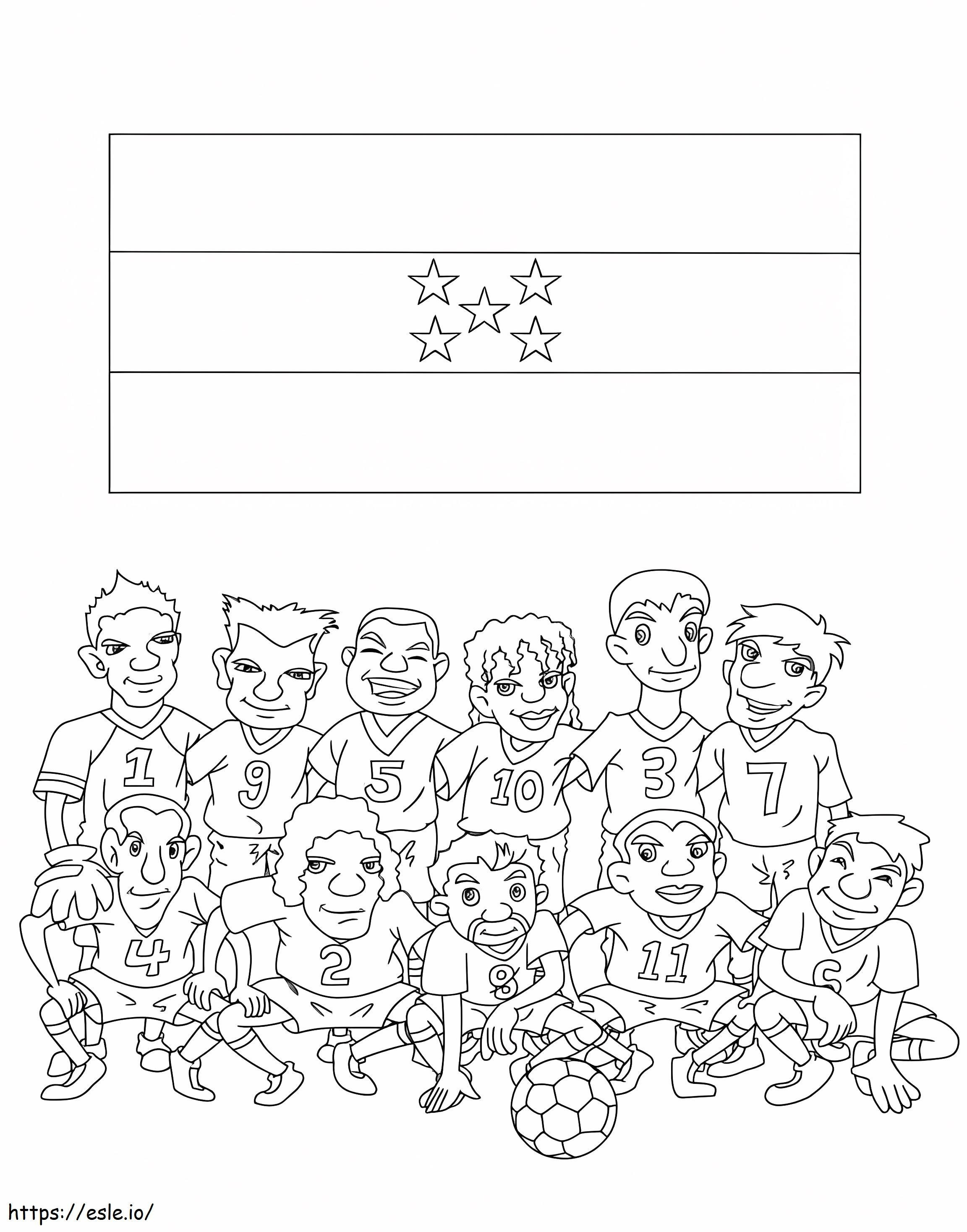Russian National Football Team: The History, the Stats, and the International Appearances.
Our team have done some analysis, digging information, made Russian National Football Team: History, Stats, And International Appearances we put together this Russian National Football Team: History, Stats, And International Appearances guide to help target audience make the right decision.
Key differences or Key takeways
Transition to main article topics
FAQs
This section presents a comprehensive collection of frequently asked questions regarding the history, statistics, and international appearances of the Russian National Football Team. These questions aim to clarify common misconceptions, address queries, and enhance the reader's understanding of the team's journey.

Russian National Football Team Goalkeeper Andrey Lunev Editorial Photo - Source www.dreamstime.com
Question 1: When was the Russian National Football Team established?
The Russian National Football Team was established in 1992, following the dissolution of the Soviet Union.
Question 2: What is the team's official nickname?
The Russian National Football Team is affectionately known as "Sbornaya," which translates to "The Team" or "The Squad."
Question 3: Has Russia ever won the FIFA World Cup or UEFA European Championship?
No, Russia has not yet won the FIFA World Cup or UEFA European Championship. Their best result in both competitions was reaching the semifinals in 2018.
Question 4: Who is considered the greatest Russian footballer of all time?
Lev Yashin, the legendary goalkeeper, is widely regarded as the greatest Russian footballer of all time. He is known for his exceptional reflexes, acrobatic saves, and leadership.
Question 5: What is the team's home ground?
The Russian National Football Team's home ground is the Luzhniki Stadium in Moscow, one of the largest and most prestigious stadiums in Russia.
Question 6: How often does the team play international matches?
The Russian National Football Team typically plays several international matches each year, including friendlies, competitive matches, and qualifying tournaments for major competitions like the FIFA World Cup and UEFA European Championship.
We hope these FAQs have provided you with valuable insights into the Russian National Football Team. For further information, please explore the provided resources or contact the relevant football authorities.
Next Article: A Comprehensive Analysis of the Russian National Football Team's Performance in Major Tournaments
Tips
The Russian National Football Team has a rich history and has participated in various international tournaments. Here are some tips for following the team and understanding its performances:
Tip 1: Research the Team's History
Familiarize yourself with the team's history to understand its trajectory, achievements, and challenges. This knowledge will help you appreciate the team's performances and the significance of its accomplishments.
Tip 2: Follow Current Matches and News
Stay informed about the team's latest fixtures, results, and news. Follow reputable football news outlets, official team channels, and social media accounts to stay updated on the team's progress and activities.
Tip 3: Track Player Statistics
Keep track of individual player statistics to identify key performers, top scorers, and influential players. This will enhance your understanding of the team's strengths and weaknesses and help you appreciate the contributions of talented individuals.
Tip 4: Study Match Analysis
Read or watch expert match analysis to gain insights into the team's tactics, formations, and overall performance. This will help you understand the strategic decisions made by the coaching staff and the reasons behind the team's successes or setbacks.
Tip 5: Attend Matches or Watch Broadcasts
If possible, attend national team matches or watch them on television or streaming services. Witnessing the team's performance in person or through broadcasts will provide a more immersive experience and allow you to observe the team's dynamics and skill level firsthand.
Summary:
Following these tips will help you become a knowledgeable follower of the Russian National Football Team, enabling you to appreciate their performances, understand their history, and stay informed about their progress on the international stage.
Russian National Football Team: History, Stats, And International Appearances

Honduras National Football Team coloring page - Source esle.io
The Russian National Football Team is a well-established and respected squad that has made significant contributions to international football throughout history. Various aspects of its journey, including its founding, statistics, and global presence, provide valuable insights into the team's evolution and impact on the sport.
- Established: 1912 - The origins of the Russian National Football Team can be traced back to the early 20th century, with its formal establishment in 1912. This long history speaks to the team's deep-rooted traditions and enduring presence in the world of football.
- Honours: Euro 1960 - Among its notable achievements, the Russian National Football Team has secured the coveted UEFA European Championship title once, in 1960. This triumph remains a cornerstone of the team's legacy and a testament to its competitive spirit.
- FIFA Ranking: Top 20 - Consistently ranked among the top 20 teams by FIFA, the Russian National Football Team has maintained a strong position in international football, showcasing its skills and consistency against formidable opponents.
- Global Presence: World Cup Appearances - The team has made numerous appearances at FIFA World Cups, the pinnacle of international football competitions. These appearances demonstrate the team's ability to compete at the highest level and represent Russia on a global stage.
- Home Stadium: Luzhniki - The majestic Luzhniki Stadium serves as the home ground for the Russian National Football Team. This iconic venue has witnessed countless matches and memorable moments, providing a fervent atmosphere for both players and fans alike.
- Legendary Players: Yashin, Arshavin - Over the years, the Russian National Football Team has been graced by legendary players such as Lev Yashin and Andrey Arshavin. These individuals have left an indelible mark on the team's history with their exceptional skills and contributions.
These key aspects collectively paint a vivid picture of the Russian National Football Team's journey, showcasing its historical significance, statistical achievements, global recognition, and the enduring legacy of its legendary players. Through their consistent presence in major international competitions and the passion they ignite among fans, the team continues to be an integral part of the global football landscape.

Top 999+ Denmark National Football Team Wallpapers Full HD, 4K Free to Use - Source lassho.edu.vn
Russian National Football Team: History, Stats, And International Appearances
The Russian national football team, controlled by the Russian Football Union, represents Russia in international football. Having participated in UEFA competitions since 1992 following the dissolution of the Soviet Union, the team's biggest achievement was winning the inaugural UEFA European Football Championship in 1960 while representing the Soviet Union.

Russian National Football Team Coach Stanislav Cherchesov Editorial - Source www.dreamstime.com
The Russian national football team has a rich history and has participated in many international tournaments. The team has qualified for the FIFA World Cup 11 times, the UEFA European Championship 12 times, and the FIFA Confederations Cup once.
The team's best results in the FIFA World Cup were in 1966, 1994, and 2008, when they finished in 4th place. In the UEFA European Championship, the team's best results were in 1960, 1972, and 1988, when they won the tournament. The team also finished in 2nd place in 1964, 1976, and 1988.
The Russian national football team is currently ranked 35th in the FIFA World Rankings. The team is led by manager Valery Karpin. The team's captain is Artem Dzyuba.
| Tournament | Appearances | Best Result |
|---|---|---|
| FIFA World Cup | 11 | 4th Place (1966, 1994, 2008) |
| UEFA European Championship | 12 | Winners (1960) |
| FIFA Confederations Cup | 1 | Group Stage (2017) |